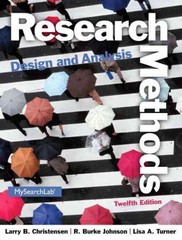Question
This is for the Central Banks article below. If inflation is increasing and you expect it to continue to the future then you will want
This is for the Central Banks article below.
If inflation is increasing and you expect it to continue to the future then you will want to _______________________.
A) Spend your money slower and sooner
B) Spend your money faster and later
C) Spend your money faster and sooner
Central Banks
Are central banks heading back to an era of rationing money?
The question may sound daft when policy makers are pumping gushers of cash into several of the world's major economies. But as the central banks become more desperate to boost inflation and growth, they are starting to break one of the modern tenets of the profession by funneling that cash directly to what they regard as "good" uses.
The past two weeks brought interventions by theBank of Japan(Links to an external site.)and European Central Bank, which would have been unthinkable just a few years ago.
The Bank of Japan's conditions for companies to qualify for exchange-traded funds it would like to buy sound like they come from a well-meaning government minister, not a monetary authority concerned about overall growth and inflation. Companies could qualify by offering an "improving working environment, providing child-care support, or expanding employee-training programs."
The central bank wants financiers to make a new breed of ETFs it would like to buy. The ETFs would hold only shares of companies that are increasing capital spending, expanding spending on research and development or boosting what the Bank of Japan calls "human capital." The latter means pay raises for staff, taking on more people or improving human resources.
All these are eminently reasonable things to demand of companies, especially Japanese firms. All would probably be good for the economy, too.
However, they have nothing to do with monetary policy. The basic aim of central banks is to adjust the overall economy while leaving the market and government to decide the best use of capital, decisions that are inherently political. The problem, as Neal Soss, vice chairman of research atCredit Suisse Group(Links to an external site.)AG , puts it, is "these are very, very challenging times for the economic orthodoxy," and if governments won't step up with an expansionary fiscal policy, central banks have little choice but to fill the gap.
To be fair, Bank of Japan Gov. Haruhiko Kuroda is hardly drawing up a Soviet-style five-year plan. Only 300 billion ($2.7 billion) a year will be spent "with the aim of supporting firms that are proactively investing in physical and human capital."
The worry is that the Bank of Japan has only just begun.
"It's a massive politicization of credit: Here are the legitimate things for lending, and here are the illegitimate things," said Russell Napier, an independentstrategist and author of"Anatomy of the Bear," a study of 70,000 Wall Street Journal articles during major bear markets. "It's capitalism with Chinese characteristics."
Consider the ECB. It plans to pay banks to borrow from it for up to four years so long as they use the money to help the "real" economy, meaning that they don't simply pump up the housing markets by offering more mortgage finance. It has carried out targeted longer-term refinancing operations before, but in the past charged the banks the same rate as for standard weekly loans. This time it will cut the interest rate to as low as minus 0.4%the ECB paying the banksif the banks lend more to the real economy than a benchmark amount linked to their recent loans.
The tension between central banks and the market is real. Policy makers have been trying to push households and companies to consume more and take more risk by lowering rates, making saving less appealing and pushing investors into riskier assets.
Even so, policy makers tried to leave the details of capital allocation to the markets, with most intervention in "safe" government debt.
But the global mind-set remains one of caution. Investors pushed out of government bonds have bought corporate bonds and the least-risky shares with the most reliable dividends, ones that look most like bonds. In turn, shareholders have pushed executives to avoid investing in new assets and either return cash via buybacks or bid up the price of existing assets.
"The market would much rather companies take the ECB's cheap money and use it to buy each other," said Robert Buckland, an equity strategist atCitigroup(Links to an external site.)Inc.
For the past seven years, the correct bet has been that the central banks will fail to stimulate the economy. Shares of companieswith solid dividends and strong balance sheets have beaten the wider market, along with those that restricted investment and boosted buybacks.
There is no sign that central banks are giving up. Last week, both Mr. Kuroda and ECB chief economist Peter Praet insisted their interest rates could go even more negative. One company, at least, already is preparing. German reinsurerMunich Re(Links to an external site.)said it plans to store more than 10 million ($11.3 million) of physical bank notes in vaults to test the feasibility of avoiding negative rates.
The more speculators, consumers and corporate executives try to minimize the impact of central-bank policies, the more policy makers will channel money directly to the uses they want. We aren't turning into the U.S.S.R., but central banks are less committed than they used to be to the free-market capitalism that has prevailed since the 1980s. Investors betting that central banks will fail should beware.
Step by Step Solution
There are 3 Steps involved in it
Step: 1

Get Instant Access to Expert-Tailored Solutions
See step-by-step solutions with expert insights and AI powered tools for academic success
Step: 2

Step: 3

Ace Your Homework with AI
Get the answers you need in no time with our AI-driven, step-by-step assistance
Get Started


